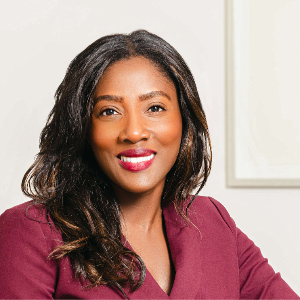
Why Failure Is The Best Teacher
Failure Didn’t Feel Like Failure in My 20s
In my 20s, I failed frequently.
But at the time, I didn’t see it that way.
Every setback forced me to get creative. Desperation left no room for pride—only action.
Looking back, I see that each so-called “failure” sharpened my resilience and problem-solving skills.
Those moments shaped the entrepreneur I would eventually become.
But Things Did Go Wrong
I started a business selling hair—sourcing human hair from India, shipping it to China, and creating custom wigs and hairpieces.
I understood the confidence that came from wearing the hair you wanted, because I sometimes wore hair extensions myself.
I launched my business with zero experience as a leader or entrepreneur.
Still, I thought, If someone else can do it, why not me? I figured if I worked hard, success would follow.
Spoiler: it didn’t. At least not right away.
I opened a retail store in Beverly Hills—one of the most expensive cities in the world.
Big mistake. Worse, I relied on a single supplier.
I naively believed that loyalty would lead to better deals over time. But one day, without warning, my supplier hiked prices by 35%!
Selling hair from my home had been profitable, but the overhead costs of a retail store and three employees meant this price jump could tank everything.
I couldn’t pass the full increase on to customers without losing them. I had to pivot—fast.
I narrowed my product line to focus on best-sellers. I introduced new services like dyeing and repairing hair, which allowed me to raise prices.
I swapped out fancy packaging for simple but stylish tissue paper and labels. There was no time to sulk—I had to get creative just to stay afloat.
And They Kept Going Wrong
Another time, I flew all the way to China to meet a potential vendor.
I had researched thoroughly, sent product samples, and spent months communicating with a representative named Jimmy via Skype and email.
What Jimmy never told me before I arrived was that he'd been fired from the company I thought he worked for and had joined a smaller competitor.
When I landed in China, Jimmy greeted me, took me to lunch, and drove me to the factory. The facility was small and dingy.
I was so surprised to see workers sitting on the dirt floor! It looked nothing like the photos I’d seen—no modern technology, no sleek lobby with a company sign.
What is this? I thought.
My instincts told me something was off, but I was afraid to speak up.
I didn’t want to come across as the ugly American—rude and ungrateful.
Jimmy had been the ultimate host – picking us up from our hotel daily and driving us to the small factory and getting lunch.
I felt trapped.
I couldn’t ask him to drive me around to competitors, plus I didn’t have appointments with any other vendor.
I went ahead and placed an order with Jimmy—a small one—and hoped for the best.
I figured if it didn’t work out, I’d be out a few thousand dollars.
To my surprise, the order arrived in the U.S. on time and exceeded my expectations.
I just couldn’t shake the feeling of being misled.
Even though the outcome was positive, I ended the relationship because I valued integrity and transparency in my business partnerships.
I Forgot Everything—Except My Voice
Then there was the time I flew to St. Thomas for a trade show.
I wanted to expand my customer base. Okay fine, I’ll admit I also wanted a tax-deductible vacay.
I had been looking forward to getting away for weeks.
I packed cute sundresses, sunglasses and a bikini I wasn’t sure I’d have the confidence to wear.
In all my excitement, I forgot the luggage containing key inventory items I intended to showcase at the trade show!
There was no way to get the items sent there in time so on the day of the show, I stood there, dressed to impress in a beautifully designed booth but very little product to display.
Thankfully, I had posters, a few samples, and my voice.
Many other vendors relied on their displays to do the talking, engaging less with booth visitors.
I took a different approach, using conversation to connect with potential customers.
I even negotiated with the hotel’s catering service to provide freshly baked cookies at my booth.
The warm, soft cookies drew people in—and while they nibbled, I asked key questions about their needs and seized the opportunity “talk” about our custom order process.
Couldn’t even believe it when I left with deposits for several orders!
Failing Less, but Still Failing
Back in my 20s, I didn’t have all the answers—but I also didn’t stress much when I screwed up.
I figured things would work out somehow. I’d laugh it off, turning my stupid mistakes into funny stories to share with friends:
“No way—you flew all the way to China and met with the wrong company?!”
But as we get older, the stakes are higher.
There are mortgages to pay and families to support. Mistakes can feel heavier, harder to recover from.
These days, I fail less, but I still fail.
The difference is that I pause before I leap, weighing the consequences more carefully.
And when I do misstep, I try to extract the lesson—because failure without learning is just repetition.
When We Stumble
No one moves through life without scars.
At some point, we all fall.
And in the middle of a crisis, it can feel like there's no way forward.
But dwelling on failure doesn’t fix it—it only robs us of peace.
Failure only wins when we stop trying.
Every stumble is a chance to learn, adapt, and return stronger.
And sometimes, in those moments, we uncover strengths we never knew we had.

